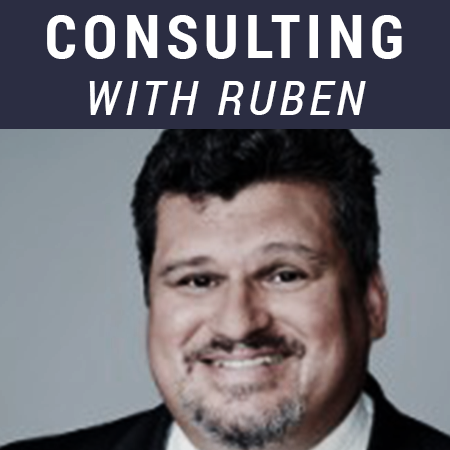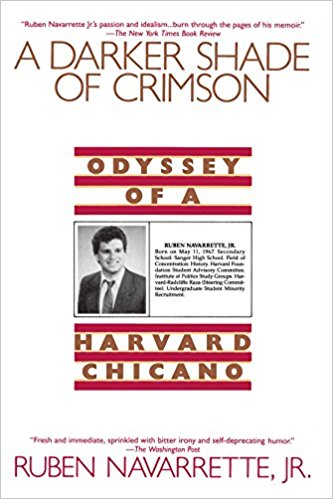“Miguel came from a small town in northern Mexico. He came north with his brother Louis to California three years ago.
“They crossed at the river levee, when Louis was just sixteen. And found work in the fields of the San Joaquin…
“They worked side by side in the orchards. From morning till the day was through. Doing the work the gueros wouldn’t do.” — Bruce Springsteen, “Sinaloa Cowboys”
As I am reminded now and again, the great American divide is not between rich and poor, black and white, immigrant and native or liberal and conservative.
The big split is — and has always been — between urban and rural, between those who grew up in and live in cities and those who were raised in and reside in the country. It’s between street lights and taxi cabs and police sirens on one hand, and fireflies and tractors and the whistling wind on the other. It’s the city mouse versus the country mouse.
Most of the time, these two separate planets exist peacefully in the same universe, never really crossing each other’s path. The city dwellers work and get what they need to survive, and the country folks do the same — each preferring their way of life to the other’s.
But that changes when there is a crisis that affects one but not the other, or perhaps affects them both but in different ways. It is hard to be empathetic toward someone who lives a life that is totally foreign to you.
Consider the plight of the neglected, overlooked and generally under-appreciated American farmer, who feeds the nation, and yet ironically often hungers for a sympathetic ear about things that keep him up at night: falling prices for his crops, a shortage of water in the fields, unpredictable weather, trade wars that threaten to either cut off foreign markets or make them too expensive in which to compete, politicians and insects that take turns preying upon him for their own survival.
Both political parties treat farmers like walking ATMs. Democrats ask for campaign contributions, and promise to battle fellow Democrats in the party’s environmental wing to loosen water allotments.
Republicans ask for campaign contributions, and vow to push back against fellow Republicans in the party’s nativist wing to get more immigrant workers.
Yet nothing happens. Promises are broken. Excuses are offered. “Just write me one more check. Send me back for another term. We’re so close,” they say.
I’ve lived in a half-dozen cities — Los Angeles, New York, Dallas, Cambridge/Boston, Phoenix, San Diego.
But most of the time, I feel as though I’m just visiting. I’m still a country mouse in my DNA.
I grew up in farm country. I left it, but it never left me.
I was born and raised around the fields in central California, a lush region that helps feed half the country and a big chunk of the world. Besides the agriculture, the area also has a decent number of dairy and cattle ranches.
In my largely Latino hometown of Sanger, California — a town of about 25,000 people east of Fresno — I was surrounded by rows upon rows of trees that produced peaches, almonds and oranges, and miles of vines that grew table grapes and grapes that the sun would turn to raisins.
Fun farm fact: Only the raisin grapes, and those that might be turned into juice, can be picked by machines. Because machines are indelicate, they often bruise the fruit they handle.
If you buy a piece of fruit in the supermarket, you taste it with your eyes first. You don’t want bruises. So a farmer can’t sell bruised fruit to markets. But if the fruit — in this case, grapes — is to be laid out in the sun for a few days to make raisins, then it doesn’t matter if they’re picked by machines.
Congratulations. You now know more about farming than most of the Ivy League-educated media elites in Washington and New York. Perfect SAT scores notwithstanding, I bet many of those folks don’t know the difference between a valencia and a navel (those are types of oranges, by the way).
These are hard days on the farm. And they’re even harder if that farm happens to be in parched central California. Not only do most farmers in that part of the country need greater access to water — especially if they grow water-intensive crops like avocados, alfalfa and almonds — they’re also facing a crushing labor shortage.
There are three reasons for that. One, Americans are raising the third or fourth generation of teenagers and 20-somethings to shun hard and dirty jobs.
Two, farm work — which can be especially grueling in the heat of summer — checks both of those boxes.
And three, President Trump seems to be making good on his campaign pledge to remove scores of undocumented immigrants.
Raids and sweeps are common. People are being apprehended and deported when they report to immigration officials to renew their paperwork. In this climate, some workers are too afraid to even show up at job sites. Fruit is rotting on the vine.
An industry that produces nearly $50 billion in annual revenue deserves better. But while Big Tech and Hollywood are recognized as major players in the California economy, Big Ag is usually treated like an unwanted stepchild.
Not that President Obama was much better for farming. In eight years, his administration deported more than 3 million people. Obama repeatedly claimed — despite evidence to the contrary — that the vast majority of those removed were violent criminals and “gang-bangers.” In reality, many of them were no such thing. They were simply what lawmakers like to call “unskilled” laborers — including farm workers.
There are plenty of myths, faulty assumptions and outright lies about farming.
And one of the biggest untruths is that farm work is unskilled. No one who has ever seen a farm worker glide through a row of strawberries, or along a string of grapevines, would ever believe such a ridiculous assertion.
I got my education about this growing up in Sanger, but I recently had a refresher course in an avocado grove northeast of San Diego — just in case you wondered where guacamole comes from.
There, I saw farm workers who must be part acrobat. Picture this: They’re 12 feet off the ground, standing on ladders planted precariously on inclines because that helps with irrigation.
The workers have a heavy leather basket around their neck, and they’re using a “picking pole” to reach those avocados dangling far out on limbs.
The pole has a trigger at one end, a blade at the other, and a basket tied to the bottom of it. While standing on top of the ladder, a worker pulls the trigger, the blade cuts the stem and the avocado falls into the bucket.
If that’s not skill, I don’t know what is. You see, it’s not just that Americans won’t do these jobs. It’s also that, often, they couldn’t do them.
It was on that farm, which also produces mandarin oranges and wine grapes, that I met “Jose.” An undocumented immigrant from the Mexican state of Guanajuato, he picks and prunes and cares for just about everything that grows there.
Jose has no documents. The first time he crossed the border was about 13 years ago, he says, and he paid a coyote $3,500 for the privilege. His family stayed in Mexico.
Family is a sensitive subject for Jose. He tells me proudly that he has two daughters in private school in Mexico, and that they’re learning English.
They’re 13 and 18. I ask, when did he see them last? He gets quiet. After a pause, he says it was on his last trip to Mexico — 10 years ago. His eyes moisten. He looks away.
Are these the “animals” that Trump warns us about? Are these the fabled “bad hombres?”
Americans’ ignorance of farming is unfortunate but understandable. Times change. Families evolve. People move off the farm. Many of us wind up living in cities and raising children who think vegetables come from supermarkets.
I don’t speak for farmers. But, because I listen closely when they speak to me, I can tell you that there are some things they want you to know.
— First, even if our national pride won’t let us admit it, Americans are not going to do these jobs. Not ever.
— Second, farm work is not unskilled labor. Anyone who thinks that needs to spend a few hours in the fields.
— Third, the trend toward machination aside, many crops must be picked by hand. Besides, machines are run by people.
— Fourth, farmers don’t have the luxury of waiting five or 10 years to bring in their crops. They need a solution now.
— And fifth, most farmers aren’t “elites” who exploit their workers. They scrape by. And workers often have the leverage.
For farmers, and others who know about life on the farm, this is all common sense. But then, that’s a commodity that grows abundantly in farmland.
These days, there are plenty of other people in other lines of work — lawyers, politicians, business executives — who could use a few doses of rural common sense.
Americans who live in cities need to find their way back to the farm, and get back in touch with the needs and offerings and concerns of the one industry that is, more than any other, responsible for the founding of this country. A nation created by farmers should never have to be reminded of their contribution.
Ruben Navarrette, a contributing editor to Angelus News, is a syndicated columnist with The Washington Post Writers Group, a member of the USA Today Board of Contributors, a Daily Beast columnist, author of “A Darker Shade of Crimson: Odyssey of a Harvard Chicano,” and host of the podcast “Navarrette Nation.”





